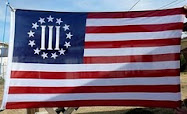Regulation or Deregulation
By PAUL CRAIG ROBERTS
Libertarians preach the morality of the market, and socialists preach the morality of the state. Those convinced of the market's morality want de-regulation; those convinced of the state's morality want regulation.
In truth, neither seems to work.
Consider for example the rules against collusion. The political left imposed this regulatory rule in order to prevent monopoly behavior by companies. One consequence has been that, unable to collude, firms are slaves to their bottom lines. In order to compete successfully in the competitive new world of globalism, firms have curtailed pensions and health insurance for their employees.
Or consider the regulation of new drugs, which drives up costs and delays remedies without, apparently, doing much to improve safety.
Or the fleet milage standards that regulation imposes on car makers. These regulations destroyed the family station wagon. Families needing carrying capacity turned to vans and to panel trucks. Car makers saw a new market and invented the SUV, which as a "light truck" was exempt from the fleet milage regulations. The effort to impose fuel economy resulted in cars being replaced by over weight fuel-guzzling SUVs.
On the other hand consider the current troubles resulting from banking and financial de-regulation. The losses from this one crisis greatly exceed any gains from de-regulation.
Or consider the plight of the de-regulated airlines and deterioration in the quality of air service. Or the higher costs of telephone service and the loss of a blue chip stock for widows and retirement funds that resulted from breaking up AT&T. Or the scandals and uncertainties from utility de-regulation which permits non-energy producers like Enron to contract to deliver electric power.
ARTICLE CONTINUES HERE























